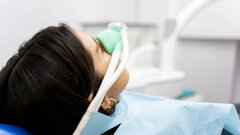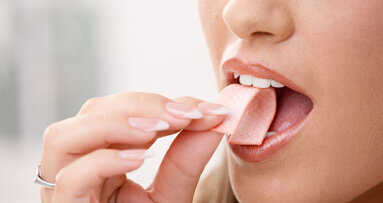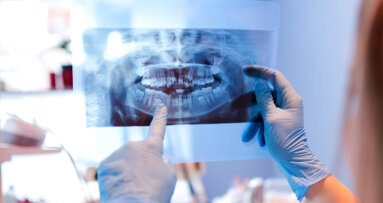LONDON, UK: Though teething is a difficult experience for both parents and their babies, a judicious decision-making process should be employed when selecting a product to relieve it. This, at least, is the conclusion reached in a recent study regarding teething products in the UK.
The research examined all 14 teething products currently licensed for commercial sale in the UK by the Medicines and Healthcare products Regulatory Agency (MHRA). The results revealed that two products contained sucrose, which could cause newly erupted primary teeth to undergo decay, as these products are applied directly to the teeth. Six products were found to contain alcohol, which has a number of potential side effects, including impaired motor development.
All six of the teething gels licensed by MHRA were found to contain lidocaine at a 1% or less solution. In 2014, the US Food and Drug Administration found that the presence of viscous lidocaine at a 2% solution had been associated with 22 adverse reactions, including six deaths.
In response to the research, the British Dental Association (BDA) has urged parents to be aware of which teething products could be potentially harmful for their children.
“Parents buying teething powders to save infants from distress won’t always realise they’re offering their kids sugars, alcohol or lidocaine,” said Chair of the BDA’s Principal Executive Committee Dr Mick Armstrong.
“Buying a licensed product should offer confidence you’re making a safe choice. The reality is consumers are navigating a minefield of potentially harmful ingredients. We need to see real change in the way these products are licensed and marketed, and clear guidance so parents understand the risks. If your little one is suffering, then a teething ring kept cool in the fridge is all you need,” Armstrong added.
The study, titled “Teething products may be harmful to health”, was published on 27 September 2019 in the British Dental Journal.
Tags:
READING, UK: Earworms, from the German “Ohrwurm”, are catchy tunes that repeat in one’s head. A recent poll suggested that over 90 per ...
Although orthodontic treatment has become increasingly commonplace, its periodontal side effects are often overlooked. In a free CURADEN webinar on Tuesday,...
Periodontitis can lead to a litany of dental issues from bad breath to bleeding and lost teeth. Now, researchers at Hiroshima University have found that it ...
PLYMOUTH, UK: The systemic health benefits of regular exercise are myriad and well documented, and much the same could be said about the use of mouthwash. ...
The link between oral health and systemic heath has been long understood by dental experts. Now preliminary research, to be presented at the American Stroke...
Until recently, performing a tooth whitening procedure on British dental patients under the age of 18 was illegal. However, recent changes in the position ...
LONDON, England: The UK dental crisis is a highly significant public health issue, having escalated in recent years owing to continued reductions in ...
PLYMOUTH, UK: Though dentistry can be a highly stressful field to work in at times, little research has been done into how time pressure can affect a ...
MANCHESTER, UK: Researchers from the University of Manchester have conducted a pioneering study in the UK focusing on the oral health and economic impacts ...
CAMBRIDGE, UK: Dental caries is the primary cause of elective hospital admissions among UK children aged 5–9 years, and the disease accounts for nearly ...
Live webinar
Tue. 24 February 2026
6:00 pm UTC (London)
Prof. Dr. Markus B. Hürzeler
Live webinar
Tue. 24 February 2026
8:00 pm UTC (London)
Prof. Dr. Marcel A. Wainwright DDS, PhD
Live webinar
Wed. 25 February 2026
4:00 pm UTC (London)
Prof. Dr. Daniel Edelhoff
Live webinar
Wed. 25 February 2026
6:00 pm UTC (London)
Live webinar
Thu. 26 February 2026
1:00 am UTC (London)
Live webinar
Tue. 3 March 2026
4:00 pm UTC (London)
Dr. Omar Lugo Cirujano Maxilofacial
Live webinar
Wed. 4 March 2026
1:00 am UTC (London)
Dr. Vasiliki Maseli DDS, MS, EdM



 Austria / Österreich
Austria / Österreich
 Bosnia and Herzegovina / Босна и Херцеговина
Bosnia and Herzegovina / Босна и Херцеговина
 Bulgaria / България
Bulgaria / България
 Croatia / Hrvatska
Croatia / Hrvatska
 Czech Republic & Slovakia / Česká republika & Slovensko
Czech Republic & Slovakia / Česká republika & Slovensko
 France / France
France / France
 Germany / Deutschland
Germany / Deutschland
 Greece / ΕΛΛΑΔΑ
Greece / ΕΛΛΑΔΑ
 Hungary / Hungary
Hungary / Hungary
 Italy / Italia
Italy / Italia
 Netherlands / Nederland
Netherlands / Nederland
 Nordic / Nordic
Nordic / Nordic
 Poland / Polska
Poland / Polska
 Portugal / Portugal
Portugal / Portugal
 Romania & Moldova / România & Moldova
Romania & Moldova / România & Moldova
 Slovenia / Slovenija
Slovenia / Slovenija
 Serbia & Montenegro / Србија и Црна Гора
Serbia & Montenegro / Србија и Црна Гора
 Spain / España
Spain / España
 Switzerland / Schweiz
Switzerland / Schweiz
 Turkey / Türkiye
Turkey / Türkiye
 UK & Ireland / UK & Ireland
UK & Ireland / UK & Ireland
 International / International
International / International
 Brazil / Brasil
Brazil / Brasil
 Canada / Canada
Canada / Canada
 Latin America / Latinoamérica
Latin America / Latinoamérica
 USA / USA
USA / USA
 China / 中国
China / 中国
 India / भारत गणराज्य
India / भारत गणराज्य
 Pakistan / Pākistān
Pakistan / Pākistān
 Vietnam / Việt Nam
Vietnam / Việt Nam
 ASEAN / ASEAN
ASEAN / ASEAN
 Israel / מְדִינַת יִשְׂרָאֵל
Israel / מְדִינַת יִשְׂרָאֵל
 Algeria, Morocco & Tunisia / الجزائر والمغرب وتونس
Algeria, Morocco & Tunisia / الجزائر والمغرب وتونس
 Middle East / Middle East
Middle East / Middle East


















































To post a reply please login or register